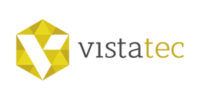50 Key Takeaways
Peter Drucker Global Forum
One of the pandemic upsides and the shift to online is that we have easier access to a feast of thought leadership conferences worldwide. Although it would have been wonderful to attend this live event, initially due to take place at the Imperial Palace in Vienna, the Peter Drucker Global (virtual) Forum delivered some of the year’s best insights on the modern business corporation.
Bringing together leaders in global business, academia, and government, the highlights for me were those around leadership, innovation, and the path to humanocracy – the overarching theme being ‘Leadership Everywhere.’
I have distilled my scribbles into 50 key takeaways. It was delightful to see so many of Vistatec’s company values reflected in these discussions.
Humanocracy
John Ferriola, former CEO Nucor Steel
1. Every employee should be a mini-CEO. Transfer power to employees but know that employees need to understand responsibility. Have leaders/entrepreneurs everywhere in the organization driving the company, not just at C-level.
2. Empowering employees leads to happier and more satisfied employees. It may require a change in company culture where there is a chain of trust, not command.
3. Focus on building people/teammates, not products; that’s what will maximize profitability.
4. The CEO’s job is to create an environment where everyone can succeed and then trust that the team can succeed.
Tracey Davidson, Deputy CEO Handelsbanken
5. Decentralized banking: each branch has autonomy. People have a shared mandate, which gets more out of employees.
6. Core values of trusting the individual help to decentralize the organization
7. It runs like a mini business and is supported, not run, by HQ
Florent Menegaux - CEO Michelin
8. Focus on employee engagement.
9. Never underestimate the casual genius in everyone; enable employees to fulfil their mission.
10. “Our manager takes care of us; we take care of the rest.”
11. We need to give people the freedom to maximize creativity.
12. Leaders need to suck out stress and give energy back.
Kevin Nolan - CEO GE Appliances (now owned by Chinese company Haier)
13. Haier’s philosophy is Rendanheyi:
Reverses the traditional concept of the economic person and the social person and redefines employees as self-motivated people. Rendanheyi asserts that employees can create values for customers by themselves and realize their own value simultaneously.14. Individuals want to realize their unique value.
15. Get more CEOs – lots of CEOs – in the company.
16. Get a new boss – the customer!
17. Live in a zero-distance world to the customer.
18. People are smart; companies are not – reach potential/flourish.
Leadership
19. Management is humankind’s most important technology.
20. Adaptability is a critical skill.
21. Build a strong culture based on human values.
22. The stronger the brand’s purpose, the more successful they are.
23. Leaders need to think inter-generationally.
24. Put purpose firmly back in the business – there needs to be an interest in the common good.
25. Empathy, not just shareholder value, is vital for sustainable success companies.
26. Stakeholder interest should be built into the solution – shareholders are more than investors – employees, community, customers, etc.
27. Many organizations are overmanaged and underlead.
28. Leaders need to pair customer experience with the employee experience. Companies that have good employee experience will foster good customer experience and, consequently, a high growth rate.
Tiffani Bova Chief Growth and Innovation Evangelist, Salesforce
29. Salesforce CEO Marc Benioff asked his organization in May 2020 to have 1 million conversations with customers and prospects. Not sales calls, just leaning into understanding the jobs to be done. In the end, they had 1.5 million conversations and launched five new products as a direct result.
Alain Bejjani – Majid Al Futtaim Group
30. Customer Experience is a mindset, even for employees, as they are the ambassadors for the brand. You’re selling a night out, not the ticket. It’s not about what your employee can do but what they can learn.
31. The Leadership Development Journey; you need to be waiting for them at the end of their journey with new challenges. Leaders need to excite and lead them along. Great leaders don’t just create followers; they produce more leaders.
Steven Baert - Chief People & Organization Officer of Novartis
32. #unboss – everyone to step up and be a leader. We will discover the real strength of humans when AI takes over repetitive tasks.
33. Curiosity is everything. Why do we think the boss has all the answers? What will it take for a leader to be self-aware? You need to learn to question yourself, acknowledge fears and name them; only then can you confront them. He gave an example of where he had committed publicly to culture change and had no clue how to do it. He was scared, and it was tempting to run away. Once he understood what the fear was and named it, he could proceed.
34. Vulnerability does not mean weakness; it means more empathy and makes you more approachable.
35. You can only have organizational change if there is individual change.
36. Resilience is more important than efficiency and effectiveness. A leader must be open to work in any environment.
37. Tomorrow’s leader must be a human being. Bring your whole self, not just your brain, to work.
Innovation
Panel discussion with: Darja Isaksson, Alex Osterwalder, Yoshikuni Takashige, Howard Yu, and Falco Weidemeyer.
38. ‘We have people and ideas, but companies lack a system where innovators can thrive.’
39. Innovation is perceived as a means to an end; it needs to be integrated into all disciplines and at all levels, not be separated as a standalone item.
40. Innovation lacks power in the organization.
41. Innovation is not solving our societal challenges quickly enough, Covid-19 being a case in point.
42. Chinese insurance company Ping An Group put innovation at the same hierarchical level as CEO; Chief Entrepreneur needs to spend 40% of her time on innovation per week.
43. We need diversity of thought; get people from outside who are able to have a difficult conversation and make difficult choices.
44. Experiment with different logic, don’t just benchmark against your industry sector – be curious!
45. Weave innovation into all disciplines: strategy, and operational. Have clear strategic goals with a focus on social and environmental. Ensure they have long-term value. Don’t think compliance is sufficient.
46. The government can play a role in innovation through legislation and may have the funding that an individual organization does not. An excellent example of this is Danish power company Orsted that went from being 100% oil/gas to 100% green energy, mainly due to government regulation.
47. Innovation is about solving a problem, a job to be done, a human thing, purpose-driven, human-centric, and needs to be done with empathy, empowering your people, and creating ecosystems where innovation can thrive.
48. Don’t think innovation is about creative genius – treat like a discipline: learn and practice. More value for customers/org/team/society = great innovation. Innovation can be learned.
49. Innovation is existential; it is not neutral. Be an ecosystem enabler – open up to other leaders – use the 1.5 degrees playbook.
50. Free yourself from dogma; don’t have scientists that don’t understand humanists and vice versa.
2020 was undoubtedly a year we’ll never forget, but it had some positives. As we face into the New Year with hope for a new ‘new normal,’ perhaps I’ll find myself in the halls of Imperial Palace doing some good old fashioned in-person learning and networking for the next Peter Drucker Global Forum. If not, I’ll catch it online!
Aoife Murphy, Strategic Accounts Director, Vistatec
Peter Drucker was an Austrian-born American management consultant, educator, and author whose writings contributed to the modern business corporation’s philosophical and practical foundations.

